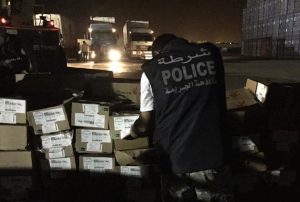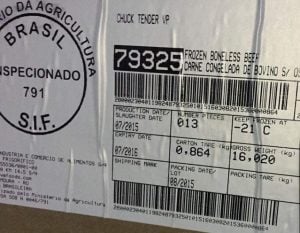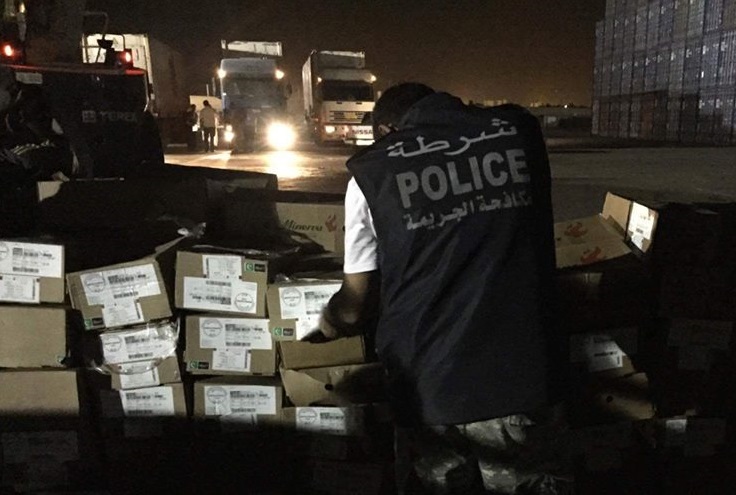By Sami Zaptia.

London, 18 June 2016:
Thirteen refrigerated containers were intercepted by the Counter Crime Unit of Khoms police on Thursday containing meat that had passed its sell by date. They had been imported by Sahel Meat Import Company, they reported today.
Markings on the outside of one of the boxes photographed by Khoms Counter Crime show that they contained frozen boneless beef from Brazil. Their expiry date was July 2016.
The refrigerated containers were monitored as they left Khoms port before they were stopped and impounded for inspection in the presence of the Food Safety Agency. The case has now been referred on for further action by other authorities, Khoms police has said.

It will be recalled that the Khoms Counter-Crime Unit had seized eight containers in May containing undervalued goods as part of a Letters of Credit (LC) foreign currency financial corruption transaction. Some containers had been found completely empty.
In another sting operation, the same Khoms unit had reported a similar operation in April with seven containers with undervalued goods.
In March, Khoms police reported that it had also seized containers supposedly full of household goods, but again these only had a front row of household goods – with the rest of the containers full of the more lucrative fireworks.
It will be recalled that there have been a number of cases over the last year of money-laundering through the opening of hard currency LCs, only for the alleged criminals to import goods either at the fraction of the value of the LCs – or to even send empty containers to Libya.
There have been reported cases where the beneficiaries of the money-laundering LCs have all together abandoned their containers in Libyan ports.
The Central Bank of Libya and Audit Bureau have been conducting a campaign to counter this phenomenon. Critics had accused the CBL of acting too late.
It will be recalled that Libya, which relies on over 90 per cent of its hard currency based GDP from hydrocarbon revenues is going through an acute economic crisis.
The crash in the country’s oil production due to its domestic conflict as well as the crash in international crude oil prices has left the country with a deficit which it is funding through its rapidly diminishing foreign currency reserves accumulated during the Qaddafi regime.








